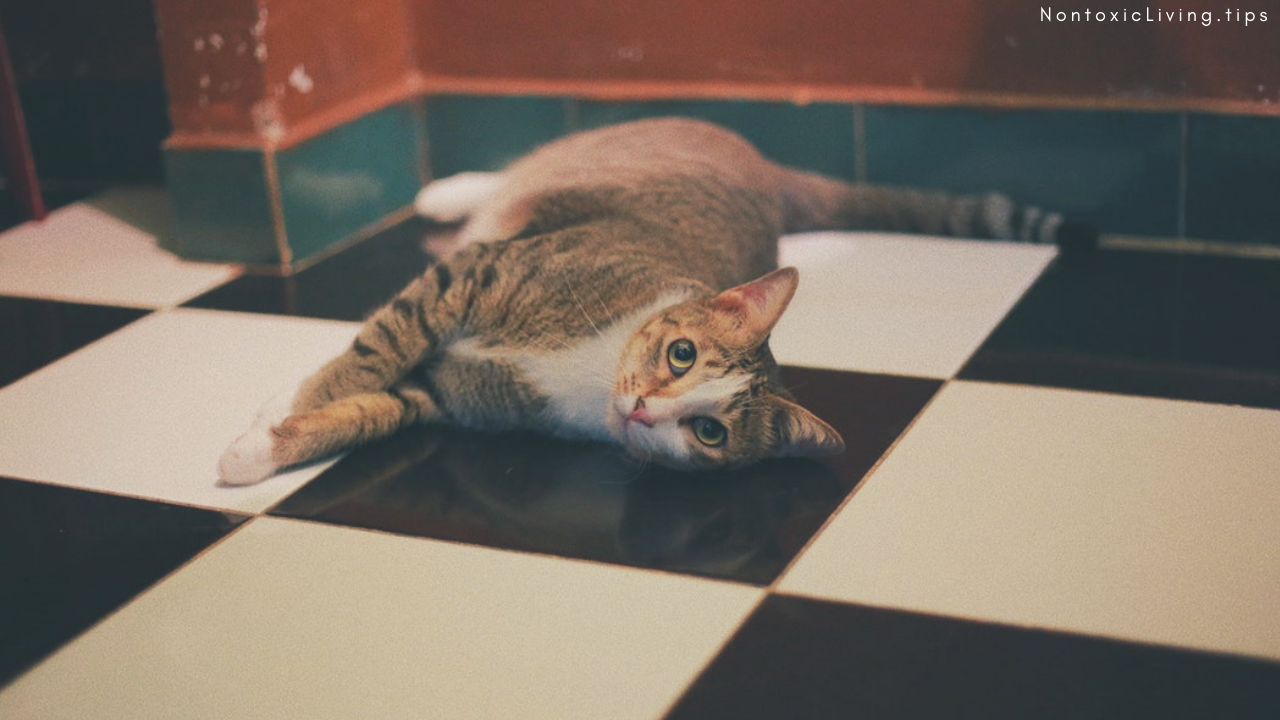
Nontoxic Floor Cleaner for 6 Types of Flooring
Oct 19, 2018By Angela Cummings and Sophia Ruan Gushée
Children spend a lot of time on floors: grabbing toys, eating toys (and other objects in sight), drooling on toys, and repeating this pattern. This cycle provides ample opportunities for floor cleaners to transfer to toys and hands, and, in turn, into the mouths of children.
Just as we want to keep our children safe from accidental poisoning (from drinking conventional cleaners, which happens more often than it should), we also want to keep them safe from cleaning residues that may be harmful to their health.
Health effects of conventional cleaners
Conventional cleaners used to clean counters, end tables, and floors have been found to contain harmful chemicals, including methylene chlorine, PFCs, formaldehyde, solvents, and surfactants/sulfates.
They may be causing short- and long-term health effects, ranging from annoying to life-changing. Studies have shown possible links between health and conventional cleaners in the following ways:
- Methylene chlorine – cancer, nervous system damage, decreased visual, auditory, motor function, mental confusion, light-headedness, nausea, vomiting, headache
- PFCs (perfluorinated chemicals) - several types of cancers, hypothyroidism, birth defects, damage to the immune system, development of the brain, reproductive, immune and endocrine systems, low birth weight, high cholesterol, liver inflammation
- Formaldehyde – several types of cancer, irritation of the eyes, nose, throat, and skin, and menstrual cycle disruption
- Solvents – affects to the nervous system, damage to the reproductive system, liver and kidney, respiratory impairment, and dermatitis
- Surfactants/sulfates - asthma and respiratory issues, skin allergies and irritation, and environmental issues, cancer, hormone disruption
Tips to clean your floor with homemade nontoxic cleaners
Labeling laws in the U.S. do not require manufacturers to disclose all ingredients. The best way to know what ingredients are in your cleaners is to make your own. It’s important to note that different types of flooring require different types of care, so not all cleaners are appropriate for every floor surface.
- Wood, Bamboo, and Laminate Floors
Wood, bamboo, and laminate flooring are made of materials that easily absorb water. In addition, after the flooring is installed there are slight spaces between the flooring planks where water can easily seep in and cause damage to the underlayment and flooring itself. For this reason, cleaning with a damp cloth (vs. wet mop) is advisable in order to avoid water damage. Nontoxic cleaners such as castile soap can be added to a bucket of warm water for an effective, simple floor cleaner. You only need 1 teaspoon of castile soap per bucket. The mixture lasts for about 600 sq ft of flooring. Simply refresh the bucket of water and soap to clean an additional 600 sq ft.
- Linoleum, Tile, and Stone
Linoleum, tile, and stone are less absorbent. However, water can seep through grout lines and cause damage. Given these properties, more water can be used on these surfaces (than on wood) but should be used with caution and only when needed. Regardless of the amount of water, consider using a nontoxic tile floor cleaner. For weekly home cleaning, mix 1 teaspoon of castile soap in a bucket of warm water. Add a 1/8 cup of vinegar if cleaning areas, such as bathrooms, that need disinfecting. However, only do this if the manufacturer instructions allow. Some stone flooring may be ruined by acidic products such as vinegar.
Conclusion
Small children spend a lot of time on floors. This makes them more vulnerable to potential toxic exposures from floor cleaners. Conventional floor cleaners may contribute to health conditions from exposures to such as methylene chlorine, PFCs, formaldehyde, solvents, and surfactants/sulfates.
Using castile soap, vinegar (on some materials), and warm water can effectively clean surfaces such as wood, bamboo, laminate wood, and linoleum. For certain materials, like stone, learn safe ways to clean these surfaces as natural stones are more reactive (like stone and vinegar).



